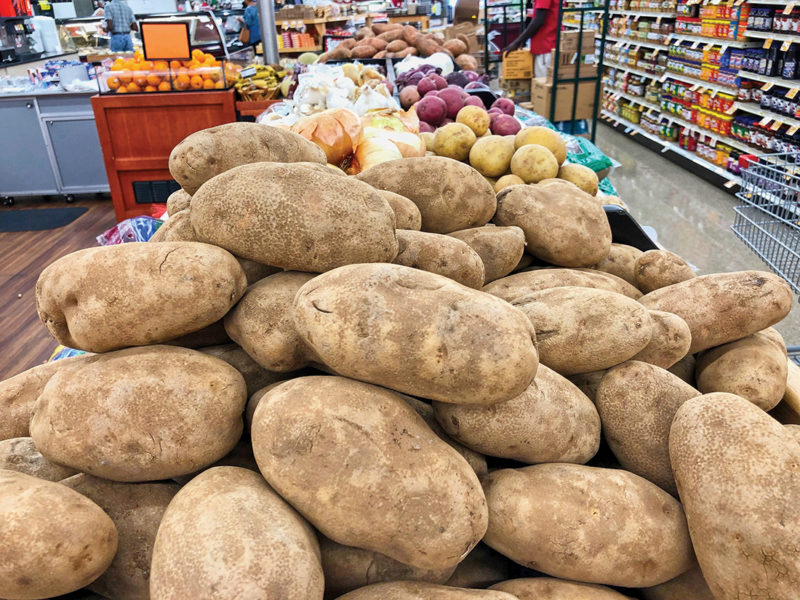Potatoes will be included in the next phase of a federal review of grading standards for fresh fruits and vegetables, and industry representatives at the Canadian Spud Congress this week think consumers are willing to be a bit more forgiving of imperfections.
“There’s a lot more acceptance for whatever the farmer grows when you’re in a farmers market,” notes Shelly Harris of Fraserland Organics Ltd. in Delta. “When we have to get on a grocery store shelf, everything has to be a certain size, we have to meet the [Canadian Food Inspection Agency] standard.”
Fraserland sells its misshapen potatoes under the Pugly name for approximately 70% of its top-grade spuds, but even then plenty don’t make the cut.
“I look at how much perfectly good food I have to send to a dairy cow to eat, or somewhere else,” she says. “It’s frustrating to waste that much food.”
Pointing to consumer acceptance of misshapen items at farmers markets, Ohio State University professor and Ohio State Food Waste Collaborative director Brian Roe thinks there’s room to increase grading tolerances at retail.
Pointing to his team’s research, he said says consumers don’t mind one or two odd-shaped carrots as part of a bunch; but they don’t want the whole bunch to be misshapen. A couple don’t diminish the value, and may even vouch for the product’s authenticity.
“Perhaps we might be able to up the tolerance rate for large lots, and maybe that would be another way to incorporate more culls and misshapen items into standard marketing,” he says. “Right now 5% or 10% are allowed; maybe we could push that up to 10% or 15%, without really diminishing the perceived value by consumers. … Inching them up a bit would just be a great way to incorporate that perfectly nutritious food into the regular food supply.”
Harris says that during a visit to the Netherlands last week, she saw several processed potato products that made use of culls in prepared formats. This is another option for making good use of produce that doesn’t look right.
CFIA’s consultation on grading standards for fresh produce is proceeding in five phases. The second phase ended February 11. The next phase will review changes to standards for beets, carrots, onions, cabbage, parsnips, potatoes and rutabagas. The dates have not been announced.


 Vet shortage persists
Vet shortage persists